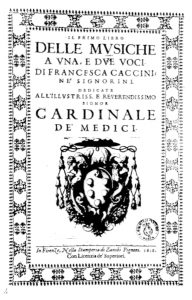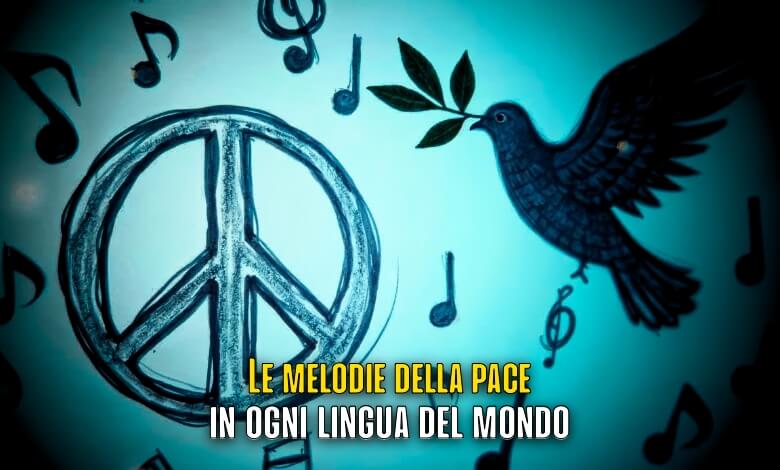Article index
Francesca Caccini: the forgotten pioneer of Baroque women's music
Francesca Caccini, nicknamed "La sniper", is one of the most extraordinary and innovative figures of Italian Baroque music. Born in Florence in 1587, her career represents a real exception in the history of music: she was a composer, singer, instrumentalist and teacher, managing to establish herself in an environment dominated by men and leaving an indelible imprint in the artistic panorama of the seventeenth century.

A talent cultivated with the family
Francesca was born in a family of musicians: his father Giulio Caccini was a famous composer and member of the Camerata de 'Bardi, promoter of the new monodic style, while his mother Lucia Gagnolanti was a renowned singer. Raised in a stimulating environment, Francesca received complete musical training, learning to play several instruments such as lute, guitar, harp and harpsichord, as well as studying literature, Latin, Greek and mathematics. This multifaceted education allowed her to develop not only a refined musical talent, but also remarkable poetic and intellectual skills.
His public debut took place in 1600, at just thirteen, when he performed as a singer in his father's work "L'euridice" during the celebrations for the wedding of Maria de 'Medici with Henry IV of France. An extraordinary event, considering that women were generally precluded to public performance. Together with his sister Sister Sette and the stepmother Margherita, Francesca formed the "Caccini concert", a family group that acquired fame throughout Italy thanks to the exceptional skill of its components.
Francesca Caccini and the rise to the Medici court
Francesca Caccini's career consolidated at the Medici court of Florence, where he was active from 1608 to 1627. Here he reached an unprecedented position for a woman of the time: he became the most paid musician of his time, even overcoming many colleagues men. His activity did not limit himself to execution: it was also a prolific composer and collaborated with important intellectuals, including Michelangelo Buonarroti the young man, for whom he music the work "Stiava" (now lost).
The support of the powerful female figures of the court was fundamental, such as Cristina Di Lorena and Maria Maddalena of Austria, who were able to recognize her talent and offer her opportunities for growth and visibility. In a context of strong social and cultural limitations for women, Francesca thus managed to carve out a space of absolute excellence.
Innovation and masterpieces
In 1618 Francesca published "The first book of music to one and two voices", a collection of 36 compositions between sonnets, madrigals, arias, motetti and hymns. This volume, fundamental for the Baroque repertoire, also reveals his experience as a teacher: it contains precious teaching indications and a specific notation for vocal embellishments, demonstrating his attention to the formation of the new generations of musicians.
His absolute masterpiece is "Ruggiero's liberation from the island of Alcina", composed in 1625 on the booklet by Ferdinando Saracinelli. This work, commissioned by Maria Maddalena of Austria, is considered the first lyrical work written by a woman and the first Italian work represented abroad, in Warsaw. Inspired by the Furioso Orlando of Ariosto, the work stands out for the originality of the musical and narrative structure: Caccini uses different musical keys to characterize the characters, creating an innovative tonal contrast and approaching Monteverdi's solutions, while maintaining its own stylistic figure.
In addition to these works, Francesca's production includes madrigals, ballads, variations, sacred and profane music, testifying to a versatile and tireless creativity.
A figure to be rediscovered
Francesca's private life was marked by two marriages and by frequent movements between Florence and Lucca. After the death of the second husband, she returned to Florence where she continued to teach music to the princesses and court ladies until 1637. The date of her death, which took place after June 1641, is not known with certainty.
Despite the fame and success achieved in life, the figure of Francesca Caccini fell into oblivion already in the eighteenth century. Only from the nineteenth century did a gradual rediscovery began, culminating in recent decades with a renewed interest in the female contribution to the history of music. In 1994 he was even named after a crater on Venus and today he bears his name an important international ancient music competition.
Francesca Caccini represents an extraordinary example of female affirmation in an era of strong gender prejudices. His work, fundamental to understand the evolution of Baroque music, deserves today that he is rediscovered, studied and performed. His story reminds us how important it is to enhance the contribution of women in culture and art, returning them the place that belongs to the collective memory.
"Music teacher" cycle. Program designed and created by Nelly Lipuma dedicated to Francesca Caccini
"Ruggero's liberation"
Read also the article: the morning song: a practice that is good for the body and mind






